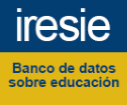Self-organization of learning in university students
Keywords:
autoorganización, aprendizaje, educación, autoeducación, desarrolloAbstract
The present work gives continuity to the Cuban experience on the self-organization of learning in higher education developed with 4th year students of the Regular Day Course of the Faculty of Psychology. It is based on the school model of the historical-cultural approach whose realization has been perfected for more than a decade. It fosters cooperative work for the common good, the development of critical points of view, responsibility, creativity, as well as commitment to the development of culture, which implies a high degree of independence. It is intended an innovative practice that allows to overcome the limitations present in the educational teaching scenario. The learning abilities that are projected to develop in university students through the subject Educational Psychology I, respond to the demands of the complexity of life and contemporary knowledge. Such requirements basically lie in the need to overcome the knowledge of rapid obsolescence, as a permanent requirement, through the use of open, flexible working methods that contribute to the development of thought and professional action dealing with uncertainty; and the need for creative, interdisciplinary and committed to the sustainable development of society.








